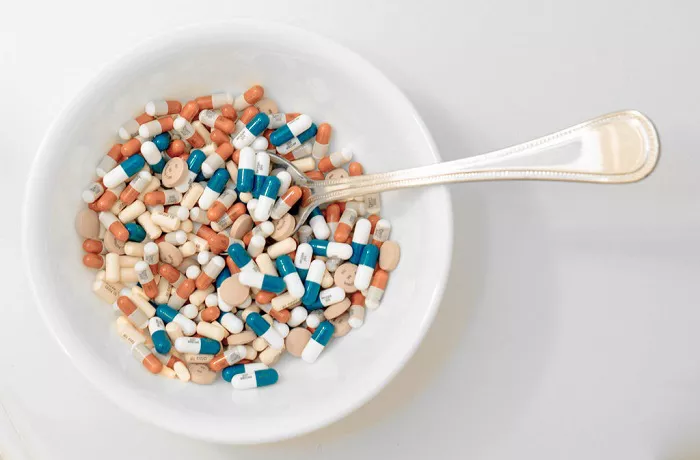Depression is one of the most common mental health disorders, affecting millions of people globally. While various treatments exist, antidepressants remain a widely prescribed solution. But a critical question persists: Can antidepressants actually cure depression, or do they merely manage symptoms?
The reality is nuanced. Antidepressants can significantly alleviate symptoms for many individuals, but they are not a definitive cure. This article examines how antidepressants function, their effectiveness, limitations, and the role of alternative treatments in managing depression.
What Are Antidepressants
Antidepressants are medications designed to regulate brain chemistry to improve mood and emotional stability. They primarily target neurotransmitters such as serotonin, dopamine, and norepinephrine, which play crucial roles in mood regulation.
Common Types of Antidepressants
Selective Serotonin Reuptake Inhibitors (SSRIs): These are the most commonly prescribed antidepressants. Examples include fluoxetine (Prozac), sertraline (Zoloft), and escitalopram (Lexapro). They work by increasing serotonin levels in the brain.
Serotonin-Norepinephrine Reuptake Inhibitors (SNRIs): Medications like venlafaxine (Effexor) and duloxetine (Cymbalta) boost both serotonin and norepinephrine, which may help with energy and motivation.
Tricyclic Antidepressants (TCAs): Older drugs such as amitriptyline are effective but often cause more side effects, making them less commonly prescribed today.
Monoamine Oxidase Inhibitors (MAOIs): These are rarely used due to dietary restrictions and potential severe side effects.
Atypical Antidepressants: Bupropion (Wellbutrin) and mirtazapine (Remeron) work differently from other antidepressants and may be prescribed when other options fail.
Each type has distinct mechanisms, and finding the right medication often involves trial and error.
How Do Antidepressants Work
Antidepressants do not provide immediate relief. Most take four to six weeks to show noticeable effects. Their primary functions include:
Regulating Neurotransmitters: They help balance chemicals in the brain that influence mood.
Enhancing Neuroplasticity: Some research suggests they may help the brain form new neural connections.
Alleviating Symptoms: They can improve sleep, appetite, and overall energy levels.
However, they do not address the root causes of depression, such as trauma, chronic stress, or genetic predispositions.
Do Antidepressants Cure Depression
The short answer is no. Here’s why antidepressants are not a complete cure:
They Treat Symptoms, Not Underlying Causes
While antidepressants can reduce sadness, fatigue, and hopelessness, they do not resolve life circumstances, past trauma, or negative thought patterns that contribute to depression.
High Relapse Rates
Many individuals experience a return of symptoms after discontinuing medication, indicating that antidepressants manage rather than eliminate depression.
Variable Effectiveness
Responses to antidepressants differ widely. Some people experience significant improvement, while others see little to no benefit. Genetic factors, brain chemistry, and environmental influences all play a role.
Risk of Dependence and Withdrawal
Stopping antidepressants abruptly can lead to withdrawal symptoms such as dizziness, irritability, and flu-like sensations. A gradual tapering process under medical supervision is usually necessary.
How Effective Are Antidepressants
Research presents a mixed picture:
- Approximately 50-60% of patients respond positively to the first antidepressant they try.
- Another 30-40% may need to switch medications before finding an effective one.
- About 10-30% do not respond to antidepressants at all, a condition known as treatment-resistant depression.
Large-scale studies, such as the STAR*D trial, found that only around one-third of participants achieved full remission with antidepressants alone.
Potential Side Effects and Drawbacks
Antidepressants are not without risks. Common side effects include:
- Nausea and digestive issues
- Weight fluctuations
- Sexual dysfunction
- Drowsiness or insomnia
- Emotional blunting (reduced ability to feel emotions)
These side effects can lead some individuals to discontinue use, reducing the overall effectiveness of treatment.
Alternative and Complementary Treatments
Since antidepressants alone are not a cure, combining them with other approaches often yields better results.
Psychotherapy
Cognitive Behavioral Therapy (CBT): Helps individuals reframe negative thought patterns.
Interpersonal Therapy (IPT): Focuses on improving relationships and social functioning.
Psychodynamic Therapy: Explores unconscious emotions and past experiences.
Lifestyle Modifications
Regular Exercise: Physical activity increases endorphins and promotes brain health.
Balanced Nutrition: Diets rich in omega-3s, vitamins, and minerals support mental well-being.
Adequate Sleep: Poor sleep exacerbates depression, so maintaining a healthy sleep schedule is crucial.
Mindfulness and Stress Reduction
Meditation, yoga, and deep-breathing exercises can help manage stress and improve emotional resilience.
Advanced Treatment Options
For severe or treatment-resistant depression, alternative interventions may include:
Electroconvulsive Therapy (ECT): Effective for severe cases but often considered a last resort.
Transcranial Magnetic Stimulation (TMS): A non-invasive brain stimulation technique.
Ketamine Therapy: Shows promise for rapid relief in treatment-resistant depression.
When Are Antidepressants Most Beneficial
Antidepressants are particularly useful in the following scenarios:
- Moderate to severe depression
- Cases where therapy alone is insufficient
- Chronic or recurrent depressive episodes
For mild depression, lifestyle changes and psychotherapy are often recommended before medication.
Conclusion
Antidepressants can be life-changing for many individuals, offering relief from debilitating symptoms. However, they are not a cure in the traditional sense. Instead, they serve as a tool to help manage depression while individuals work on deeper psychological, social, and lifestyle factors.
The most effective treatment plans typically involve a combination of medication, therapy, and healthy habits. If you or someone you know is struggling with depression, consulting a mental health professional can help determine the best course of action.
Related topics:
- Is Depression Lifelong?
- Can Clinical Depression Be Cured?
- Can A Person Be Born With Depression? (30-40%)


